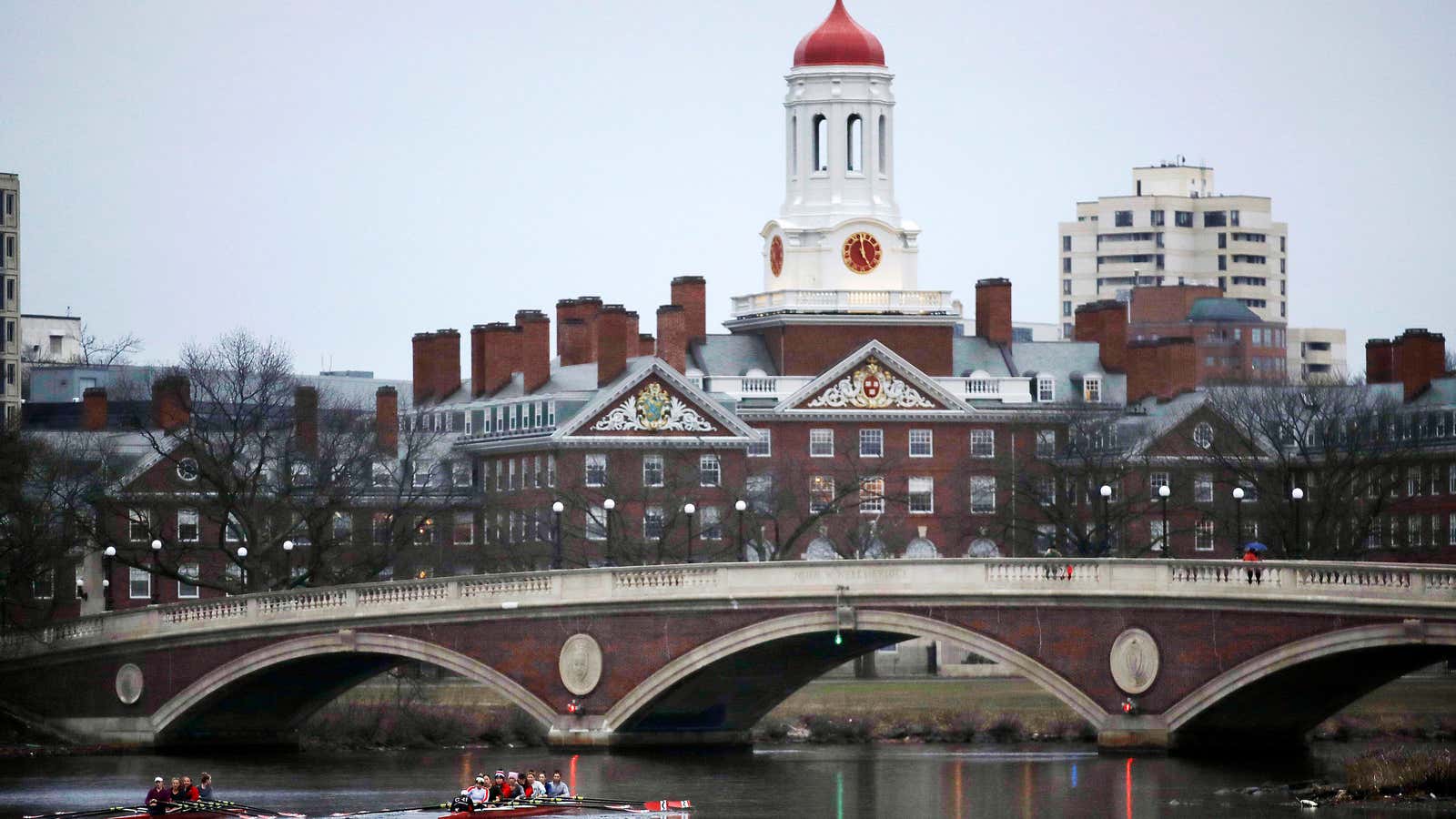Things are changing fast at America’s oldest university. In a span of just a few years, Harvard has revised faculty titles, rolled out a plethora of diversity initiatives, given severe punishments for offensive language, altered its official song—all in the interest of bettering student life—and now, to further eliminate toxicity from its social culture, it might do away with formal student organizations completely.
A faculty committee yesterday released a 22-page report recommending that the university forbid students entering in the class of 2022 and beyond from joining “fraternities, sororities, and similar organizations,” a broad category that includes Harvard’s venerated male-only final clubs—made famous in films like The Social Network.
The argument: exclusive student groups breed elitism, sexism, alcohol abuse, and other problems by their very nature.
Final clubs, in particular, have been sharply condemned by some professors and students for fostering an environment of intolerance. And single-gender sororities and fraternities, on a national level, have seen their share of scandal lately, with the most severe cases involving student deaths.
“The committee recommends that Harvard University adopt an equivalent policy to those of Williams and Bowdoin, adapting the language as appropriate to Harvard’s social climate,” says the report, pointing to rules at those nearby liberal arts colleges that have long prohibited undergraduates from joining social clubs.
The report has not yet been submitted to university leadership, so there’s no telling whether the suggestions will become reality. But given that Harvard last year already placed harsh restrictions on students who decide to join final clubs, that doesn’t seem too much of a leap.
However, such a dramatic move also risks angering Harvard’s many wealthy and influential alumni, who will not be happy to see their cherished groups crumble. (When alumni support is withdrawn from a school, so, too, are their checkbooks.) Many of Harvard’s social groups, like the male-only final clubs, have also been a facet of American political history for centuries. The task Harvard faces now is deciding how much the preservation of history is worth, when countered against the problems of the present and potential future.
